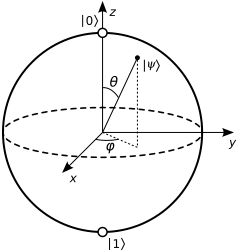Dr Xiao-Qi Zhou and colleagues at the University of Bristol’s Centre for Quantum Photonics and the University of Queensland, Australia, have shown that controlled operations — ones that are implemented on the condition that a “control bit” is in the state 1 — can be dramatically simplified compared to the standard approach.
The researchers believe their technique will find applications across quantum information technologies, including precision measurement, simulation of complex systems, and ultimately a quantum computer — a powerful type of computer that uses quantum bits (qubits) rather than the conventional bits used in today’s computers.
Unlike conventional bits or transistors, which can be in one of only two states at any one time (1 or 0), a qubit can be in several states at the same time and can therefore be used to hold and process a much larger amount of information at a greater rate.
A major obstacle for realizing a quantum computer is the complexity of the quantum circuits required. As with conventional computers, quantum algorithms are constructed from a small number of elementary logic operations. Controlled operations are at the heart of the majority of important quantum algorithms. The traditional method to realize controlled operations is to decompose them into the elementary logic gate set. However, this decomposition is very complex and prohibits the realization of even small-scale quantum circuits.
The researchers now show a completely new way to approach this problem. “By using an extra degree of freedom of quantum particles, we can realize the control operation in a novel way.









